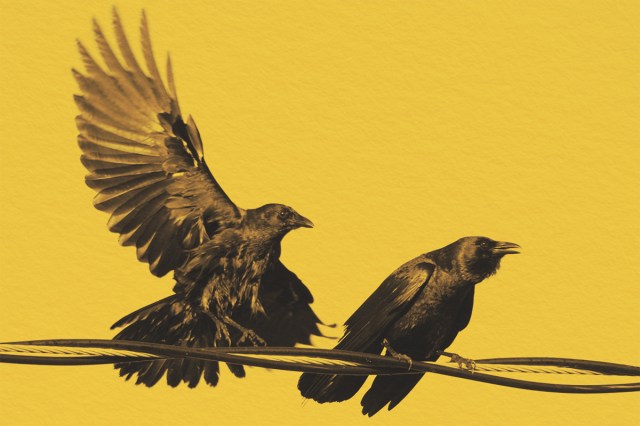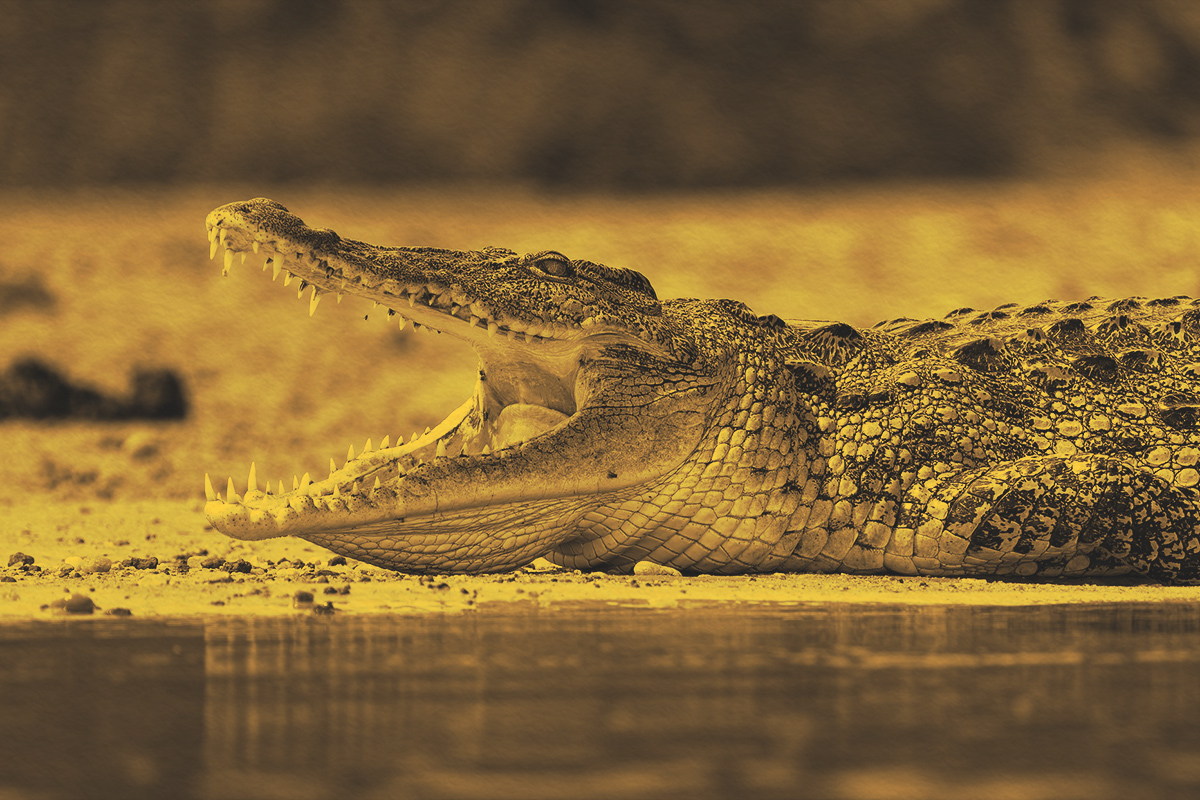
When dining out, you may order a plate of charbroiled chicken or decadent duck. But there are other birds you’ll almost never see on a menu, such as crow, which is consumed only in a figurative sense. “To eat crow” means “to admit that one was wrong or accept that one has been defeated.” But of all the animals in the menagerie, how did crows in particular come to be associated with this idiomatic walk of shame?
One popular theory can be traced back to the mid-19th century. The phrase purportedly comes from a series of similar yet slightly different versions of the same parable, which first appeared in an 1850 edition of Knickerbocker Magazine.
In summary, the story focused on a boarding house patron complaining about the food he was being served. In response, the housekeeper called the patron “too perticeler” and then bragged about their own appetite, saying, “I kin eat anything; I kin eat a crow.” Frustrated, the boarder then went on to catch and prepare a crow, which he served to the housekeeper to see if he’d follow through on his claim.
The housekeeper took several bites before grabbing his stomach and running to the door with a terrible case of nausea, and he was forced to admit he was wrong. Why the author of that original story chose crow remains a mystery, but it does explain the purported origins of this popular phrase.
The story was apparently so humorous, it was worthy of being picked up by other publications and republished. By the 1870s, there were examples of “eating boiled crow” in other publications, showing the story had turned into an idiom.

















